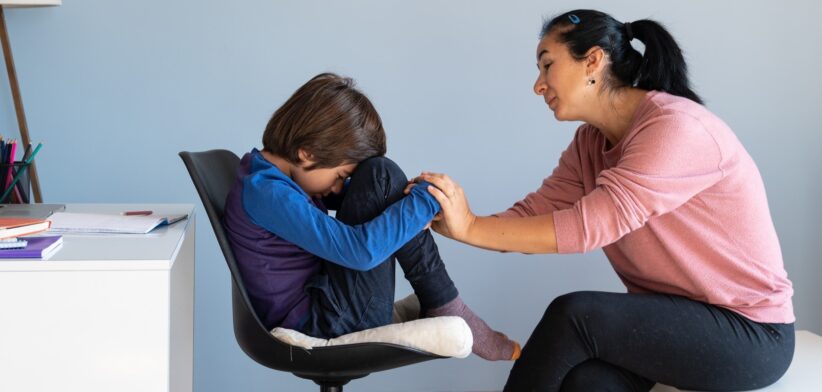More than a quarter of Australia’s children are missing primary school regularly due to mental health issues.
Research commissioned by not-for-profit health fund HCF, found more than one in three (36 percent) of primary school children experienced stress and unhappiness about going to school due to mental health challenges over the last 12 months.
Clinical psychologist Rebecca Short said the research showed 28 percent of parents surveyed reported their child missing a full day of school, due to mental health challenges, with nearly one in five (18 percent) experiencing this weekly.
Ms Short said around a quarter (26 percent) of parents reported their child’s absence from school for part of the day due to mental health challenges, including one in six (17 percent) reporting weekly absences.
“Nearly three out of 10 (28 percent) parents said their child has been late to school due to mental health challenges, with nearly a fifth (19 percent) reporting weekly occurrences.
“The emotional distress experienced by children when they are struggling to attend school can stem from many factors, including challenges related to neurodiversity and mental health disorders, as well as from difficulties at home, with their health and many other areas,” Ms Short said.
She said over half (53 percent) of parents surveyed reported that their primary schooler had displayed mental health challenges in the past 12 months.
Approximately one in three parents (37 percent) stated that their child had been formally diagnosed with a mental health or neurodevelopmental condition, with ADHD, autism spectrum disorder, and anxiety being among the most common diagnoses.
“It’s critical to recognise that children are not just staying home because they don’t like school – and that there is significant distress for both parents and children struggling with school attendance.
“Families often need intensive and appropriate support to ensure the wellbeing of both the child and their family,” Ms Short said.
She said the study also highlighted gaps in accessing mental health support, with over a third (35 percent) of parents admitting to not seeking any form of assistance for their child.
HCF Head of Health & Wellbeing Linda Opie said the availability of professionally-led and science-backed digital mental health services, such as online cognitive behavioural therapy, continued to grow.
“By offering convenient access to a range of mental health services and family support, we can empower families to choose what’s right for them to effectively navigate these difficult situations,” Ms Opie said.
“These health programs can be used independently or in combination with in-person support to assist families in need.
“For example, Calm Kid Central is an online program designed to help children aged 4–11 who experience intense mental, emotional, social, or life challenges.”
Ms Opie said This Way Up was a not-for-profit initiative developed by experienced psychiatrists and clinical psychologists which also offered a range of evidence-based online health programs and practical resources.
If you need someone to talk to, call:
- Lifeline on 13 11 14.
- Kids Helpline on 1800 551 800.
- MensLine Australia on 1300 789 978.
- Suicide Call Back Service on 1300 659 467.
- Beyond Blue on 1300 22 46 36.
- Headspace on 1800 650 890.
- QLife on 1800 184 527.








